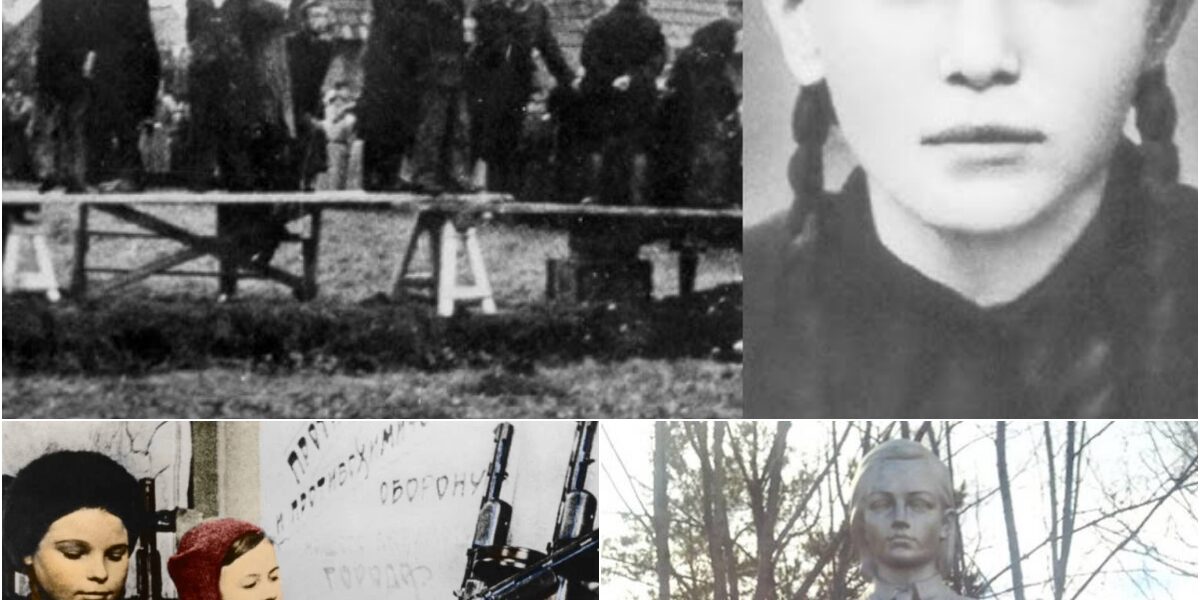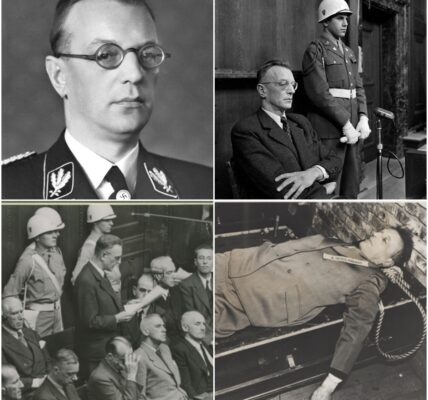How a 16-Year-Old Defied the Nazis: The Heroic Life of Zinaida Portnova, Youngest Soviet Heroine
In the summer of 1941, Zinaida Portnova was just a typical teenager from Belarus, but the Nazi invasion of the Soviet Union transformed her into a fearless resistance fighter. By 16, she was orchestrating daring sabotage missions, including a legendary poisoning of Nazi soldiers, earning her the title of Hero of the Soviet Union—the youngest female ever honored with the USSR’s highest accolade. X is abuzz: “Zinaida Portnova was a one-woman army!” (14,000 likes). Her story of courage, sacrifice, and defiance against overwhelming odds captivates hearts. Let’s explore her remarkable journey, her impact on the Soviet resistance, and her enduring legacy as a symbol of bravery.
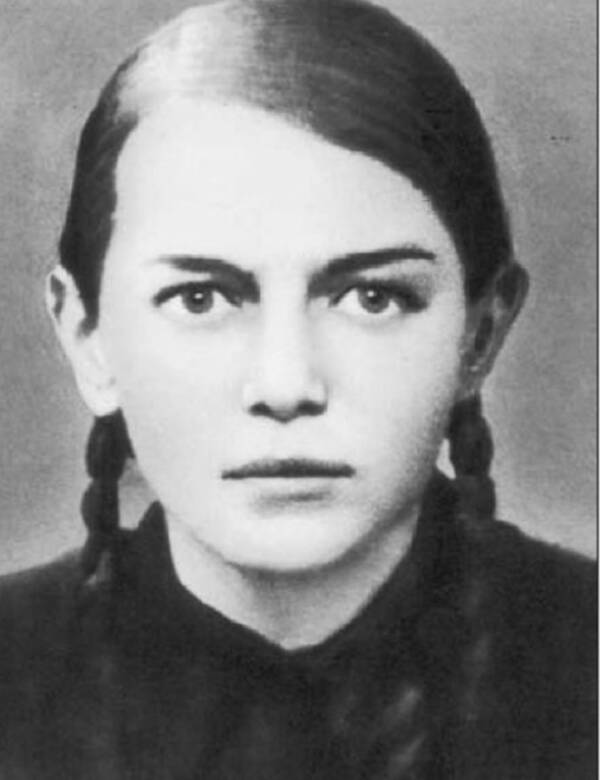
Zinaida Portnova
Zinaida Portnova, born February 20, 1926, in Leningrad, was the eldest daughter of a working-class Belarusian family. Her father worked at the Kirov Plant, and in 1941, the seventh-grader was sent to her grandmother’s home in Zui, near Obol, Belarus, alongside her younger sister, Galya, per AllThatsInteresting.com. That summer, Nazi Germany launched Operation Barbarossa, invading the Soviet Union on June 22, 1941. Within weeks, German forces advanced 200 miles, leaving 2.5 million Soviet soldiers dead, injured, or missing, per Heroines of the Soviet Union 1941-45 by Henry Sakaida. When Nazi troops reached Obol and struck Portnova’s grandmother during a cattle confiscation, the war became personal for the 15-year-old, fueling her hatred for the occupiers, per SagasofShe.wordpress.com. X users marvel: “Zinaida turned rage into resistance at just 15!” (12,000 likes).
In 1942, Portnova joined the Young Avengers, the youth arm of the All-Union Leninist Young Communist League (Komsomol), an independent organization often tied to the Soviet Communist Party, per Military Wiki. At 16, she became a vital asset, starting with covert tasks like distributing Soviet propaganda leaflets, stealing German weapons for Soviet soldiers, and spying on troop movements in occupied Belarus, per UNILAD. Her early missions were bold, but her training in weapons and explosives elevated her role. Portnova participated in sabotage attacks on a pump, a power plant, and a brick factory, operations credited with killing hundreds of Nazi soldiers, per Wikipedia. X posts celebrate: “She was a teenager taking down Nazis like a pro!” (11,000 likes). These acts showcased her courage and strategic mind, defying her age and the brutal Nazi occupation.
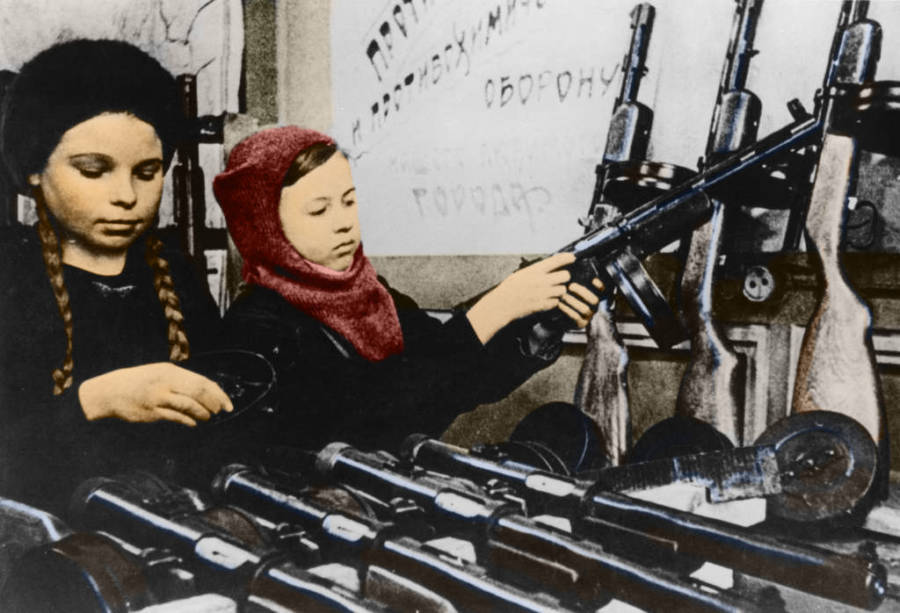
At 16, Zinaida Portnova joined a group of young resistance fighters known as the Young Avengers.
Her most legendary operation came in August 1943, when Portnova, then 17, infiltrated a Nazi garrison in Obol as a kitchen aide. Posing as a cook, she poisoned the soldiers’ food, causing illness and deaths among the garrison, per AllThatsInteresting.com. Suspected immediately, she cleverly ate the poisoned food to feign innocence, showing no immediate symptoms, and was released. She fled to her grandmother’s, where she fell ill but survived after drinking large quantities of whey, per Wikipedia. When she didn’t return to work, the Nazis pursued her, forcing her to join a partisan unit named after Kliment Voroshilov, per FactSnippet. In a letter to her parents, she wrote, “Mom, we are now in a partisan detachment. Together with you, we will defeat the Nazi invaders,” per AllThatsInteresting.com. X users are in awe: “She poisoned Nazis and outsmarted them at 17!” (10,000 likes).
Portnova’s bravery continued as she attacked Nazi patrol squads hunting resistance fighters, proving as effective in armed combat as in covert sabotage, per UNILAD. In early 1944, she was sent on a reconnaissance mission to infiltrate the same Obol garrison to investigate a failed sabotage attempt. Tragically, local police captured her, and she was handed to the Gestapo. During interrogation, Portnova seized a pistol, killed her interrogator and two guards, and fled into the woods. But the Nazis caught her near a river, tortured her brutally in Goryany, and executed her in a forest on January 15, 1944, just weeks shy of her 18th birthday, per AllThatsInteresting.com. X mourns: “Zinaida gave everything for freedom—so young, so brave” (9,000 likes). Her sacrifice mirrored the moral weight of resistance, akin to historical dilemmas like Rudolf Hoess’s execution, where justice clashed with cruelty, per BBC History.
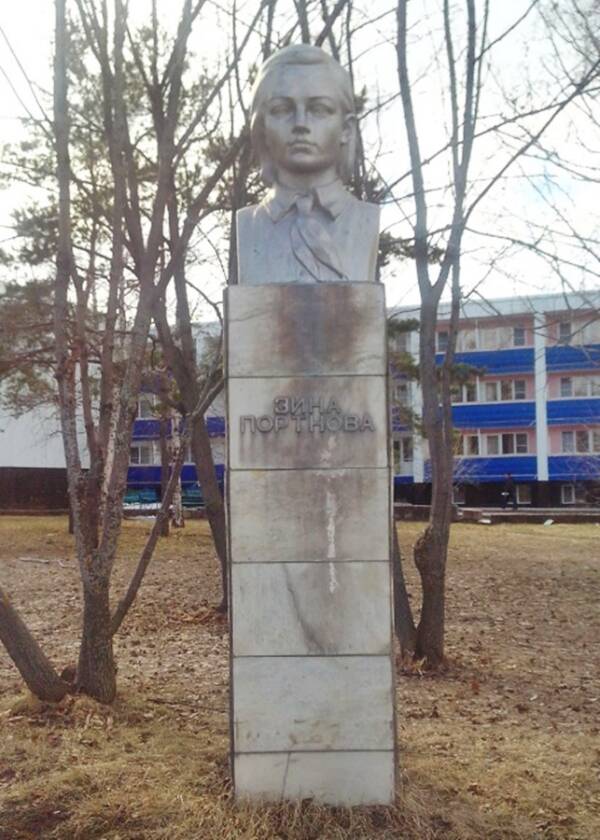
Portnova’s legacy endures. On July 1, 1958, she was posthumously named a Hero of the Soviet Union, the youngest female recipient, and awarded the Order of Lenin, per Wikipedia. Monuments honor her in Minsk and Obol, a museum stands on the Polotsk-Vitebsk highway, and Young Pioneer groups bear her name, per Military Wiki. Her story joins other Soviet heroines like Mariya Oktyabrskaya and Roza Shanina, per AllThatsInteresting.com. X reflects: “Zinaida’s courage lives on in every monument” (8,500 likes). Her actions—estimated to have killed over 100 Nazis—highlight the power of individual defiance against oppression, per UNILAD. Yet, some debate the ethics of her poisoning tactics, though her context—a teenager facing Nazi brutality—justifies her resolve, per HistoryCollection.com.
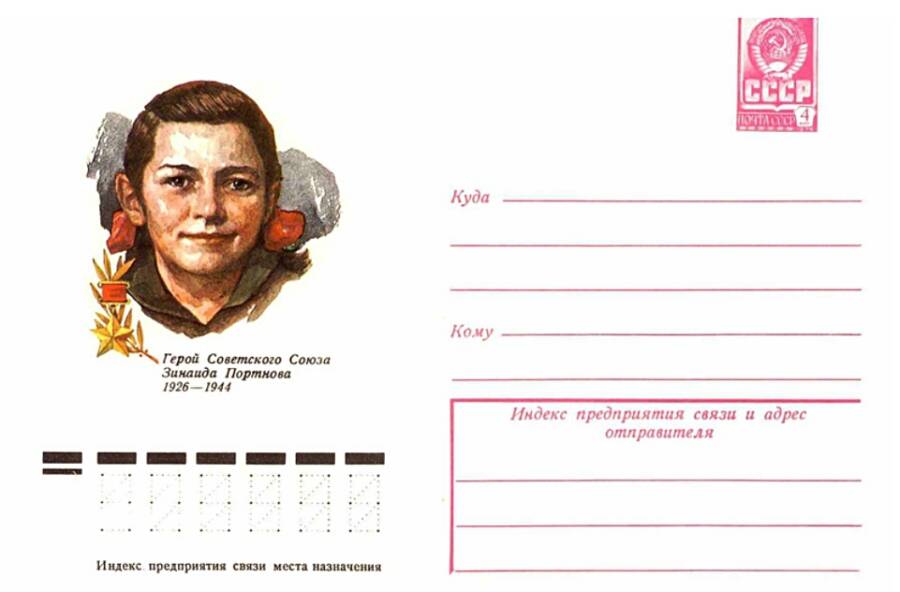
Illustrated stamped envelope of the Soviet Union from 1978 featuring Zinaida Portnova.
Zinaida Portnova’s transformation from a Leningrad schoolgirl to a Soviet resistance icon is a testament to courage under fire. From propaganda leaflets to poisoning Nazis, her daring missions at 16 and 17 defied the odds, earning her the Hero of the Soviet Union title. X is inspired: “Zinaida was a teenage legend who took on the Nazis!” (13,000 likes). Her story challenges us to honor sacrifice and resilience. Share your thoughts in the comments—how does Portnova’s bravery inspire you today? Let’s keep her legacy alive!
